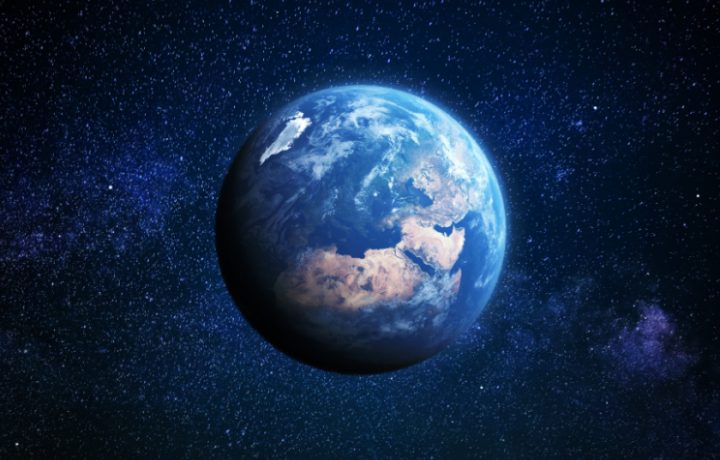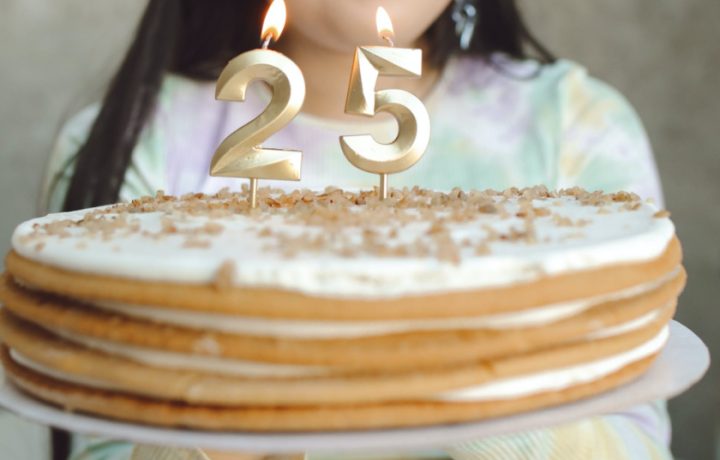Emma Grey: Finding belonging on our pale blue dot

Posted on
My son and I spent part of 26 January with a friend whose grandmother was a member of the Stolen Generation.
My friend has no information about where her grandmother was born and, because of that, there’s a sense of being untethered from a particular part of the land.
She and other family members feel drawn to the beach. Her home is decorated in cool, coastal vibes, and she feels there must be a family connection to a beachside place. But there’s no specific beach to visit and say, ‘I came from here’.
In comparison, my sister and I have just returned from a trip to Bexhill, on the far north coast of NSW, near Lismore. The home that our grandparents built almost a century ago, where our dad grew up, and which has been in our family all this time, is going to be sold, after our uncle’s death last year.
While we’ve always lived in Canberra, we spent our summers as kids at our grandparents’ places in Bangalow and Bexhill. More than any house we’ve actually lived in, we feel a strong connection to the family home that has always been a step removed from us.
Similarly, without ever having visited, I feel pulled towards Ireland. Sometimes I’ll walk through a festival and hear far-off Irish folk music and something stirs within me that makes little sense, given my Canberra-born and raised existence. It’s ‘in the blood’, and I’m grateful for the privilege of knowing that.
Jimmy Barnes made an interesting observation that, as Australians, we are either descended from indigenous owners, convicts, immigrants or refugees.
In our family’s case, and to our current knowledge, it’s convicts and immigrants—some forced to move here, some having moved by choice.
I saw some extraordinary images this week of Earth, taken from the surface of the moon during the Japanese Kaguya mission in lunar orbit. As astrophysicist Carl Sagan observed: “Look again at that dot. That’s here. That’s home. That’s us. On it everyone you love, everyone you know, everyone you ever heard of, every human being who ever was, lived out their lives…To me, it underscores our responsibility to deal more kindly with one another, and to preserve and cherish the pale blue dot, the only home we’ve ever known.”
In 2020, a virus touched every corner of the world as if to prove that point, but it didn’t do so equitably. How we continue to fare against COVID-19, as with other diseases, depends largely on where we live, our leadership, family safety, access to health care, ability to continue to work flexibly or not and much more.
When I posted photos of our family home, a friend made this observation: “It is breathtaking to me; this concept of a family so settled, so established, so continuously physically *safe* in the world (and in their country, I guess, if only by implication) that property – large, **immobile** valuable property like a HOUSE – can stay in that same family’s hands across two generations and for the better part of a century. And not just *any* century; the *twentieth* century!”
Her perspective reaffirmed for me how privileged we are that we have such a strong sense of place and such unbreakable family bonds. We have not been immune to tragedy and hardship along the way, but there is still so much we take for granted. There is so much we have not had to endure, or even think about, while getting on with our lives.
My First Nations friend purchased some new artwork on a recent holiday—it’s a stunning glass sculpture of a beach. It’s part of her quest to bond with the kind of country for which she feels an affinity, without confirmation of that connection.
It’s a stark contrast to the sunrise I enjoyed on a far north coast beach named after our ancestors who’d settled on the land nearby. Bundjalung land, but known as ‘Sharpe’s Beach’.
When I built my current house out of the ashes of a previous life that had been swept from me through death and grief, I got on my hands and knees and felt the land beneath my skin. These things matter—the connections we make to particular places.
In my friend’s words, “Denial of culture will be a part of our family’s story forever. Nan never had a voice. No connection to culture, people, place, language, identity…”
It wasn’t until I said goodbye to the weatherboard and mortar that was our family home and then admired the ocean-inspired art at my friend’s place that I really began to understand how sacred it can be to have a clear understanding of where you’re from, and how grief-inducing it can be to have that connection severed.

